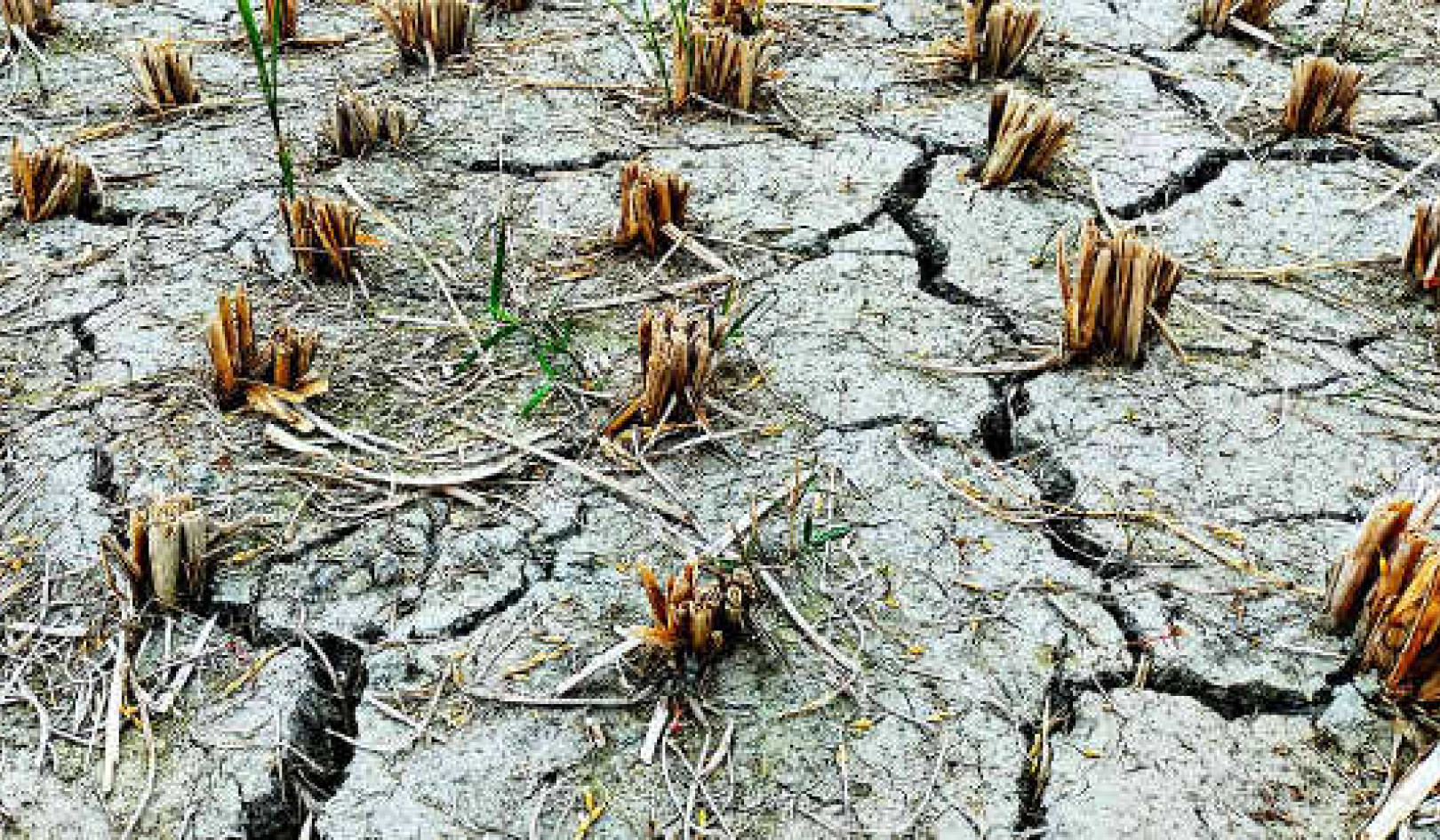 People who have been affected by extreme weather events might experience mental health issues. From shutterstock.com
People who have been affected by extreme weather events might experience mental health issues. From shutterstock.com
The Australian Medical Association (AMA) recently declared climate change a health emergency, reflecting similar positions taken by a growing list of peak medical bodies around the world.
The AMA’s statement highlights the significant impacts climate change is having on physical health, including an increase in climate-related deaths. The World Health Organisation regards climate change as “the greatest threat to global health in the 21st Century”.
But the statement also draws the very important issue of mental health out of the shadows.
Climate change can affect people’s mental health in a number of ways, both directly and indirectly.
We know experiencing extreme weather events is a risk factor for mental illness. And many thousands of people around the world are displaced from their homes as a result of climate events, putting them at perhaps even higher risk of mental illness.
More generally, people feeling distressed about the state of the planet may find themselves in a spiral of what’s been termed “eco-anxiety”.
Extreme weather events and psychological distress
Unprecedented weather events across Australia are already demonstrating clear and devastating impacts on the mental health of Australians, particularly in rural areas which are being hit the hardest by unseasonal drought, fires and floods.
These extreme weather events have resulted in the loss of homes, land and livelihoods. Research has found these experiences are taking a significant psychological toll on Australian farmers, who feel their sense of place and identities are under threat. Meanwhile, we’ve seen increasing rates of suicide among rural communities.
Elsewhere in the world, research similarly shows being affected by extreme weather events is a major risk factor for mental illness. This was evident, for example, in the aftermath of Hurricane Katrina in the United States.
Climate-related displacement
Long-term environmental changes, including once fertile land turning to desert, erosion of soil and coastlines, and sea level rise, are predicted to result in large-scale displacement, a major risk factor for mental illness.
Global statistics already estimate that in 2017 the majority of people forced from their homes around the world were displaced as a result of climate-related disasters.
 Parents sometimes worry about how climate change will affect their children’s lives in the future. From shutterstock.com
Parents sometimes worry about how climate change will affect their children’s lives in the future. From shutterstock.com
In Australia, low-lying islands such as those in the Torres Strait are at the forefront of this reality, with relocation plans already under consideration.
At the extremes, the reality of climate-induced social instability is already tangible across numerous countries, and the Asia-Pacific region is considered as high risk.
The existential dread of climate change
For many Australians, the existential dread of what the future holds in the face of unmitigated climate change is having documented impacts on their mental health. Australia’s youth have been exemplary at voicing their despair and “eco-anxiety” around the foreseeable deterioration of our planet.
For those too young to have a voice, parents are feeling anxiety and distress on their behalf. Mums and dads are under pressure to instil values such as caring for the environment, while worrying about the future of the planet they are leaving their children.
And this emerging narrative of how climate change is impacting people’s mental health is not complete. The relationships between climate events and mental health are complex and not always apparent.
Extreme heat has been observed to be harmful to multiple aspects of mental health and well-being. Data from South Australia demonstrates hot days are associated with increased hospital admissions for mental and behavioural disorders.
Other research has found spikes in temperature were associated with increased suicide rates in Sydney, Melbourne, Brisbane and Hobart.
A less obvious impact arises from the strong connection between nutritional status and mental health. Climate-related impacts on agriculture lead to reduced availability of nutritious foods, and poor nutritional intake can affect mental health.
So, what can be done?
The AMA’s recent statement has echoed calls from other medical associations for leadership on a national strategy for health and climate change. But what is it we can be doing to protect people from climate change-related mental health challenges?
Doing everything we can to reduce the progression of climate change is one clear way to address this issue.
But with the knowledge the climate crisis is only escalating, some practical responses will focus on preparing the health system for climate change. This should include increasing awareness of the mental health effects of climate change across the community, private, and government sectors.
It will also be important to invest in areas where mental health services are under-resourced, which are often the rural areas where the mental health effects of climate change are likely be most severe.
A small but significant consolation is the public awareness being generated through the tireless work of advocacy groups and purposeful media reporting of farmers’ personal stories of distress.
Climate change adaptation strategies are in their infancy, but already we’re seeing some programs aimed at strengthening communities, particularly rural communities most severely affected by drought.
There will be no single solution to address the mental health impacts of climate change; a broad perspective and a range of actions will be necessary. As the climate crisis continues to unravel in Australia and globally, this will require strong leadership and some innovative thinking.
About The Author
Fiona Charlson, Conjoint NHMRC Early Career Fellow, The University of Queensland
This article is republished from The Conversation under a Creative Commons license. Read the original article.
Related Books
Life After Carbon: The Next Global Transformation of Cities
by Peter Plastrik , John Cleveland The future of our cities is not what it used to be. The modern-city model that took hold globally in the twentieth century has outlived its usefulness. It cannot solve the problems it helped to create—especially global warming. Fortunately, a new model for urban development is emerging in cities to aggressively tackle the realities of climate change. It transforms the way cities design and use physical space, generate economic wealth, consume and dispose of resources, exploit and sustain the natural ecosystems, and prepare for the future. Available On Amazon
The future of our cities is not what it used to be. The modern-city model that took hold globally in the twentieth century has outlived its usefulness. It cannot solve the problems it helped to create—especially global warming. Fortunately, a new model for urban development is emerging in cities to aggressively tackle the realities of climate change. It transforms the way cities design and use physical space, generate economic wealth, consume and dispose of resources, exploit and sustain the natural ecosystems, and prepare for the future. Available On Amazon
The Sixth Extinction: An Unnatural History
by Elizabeth Kolbert Over the last half-billion years, there have been Five mass extinctions, when the diversity of life on earth suddenly and dramatically contracted. Scientists around the world are currently monitoring the sixth extinction, predicted to be the most devastating extinction event since the asteroid impact that wiped out the dinosaurs. This time around, the cataclysm is us. In prose that is at once frank, entertaining, and deeply informed, New Yorker writer Elizabeth Kolbert tells us why and how human beings have altered life on the planet in a way no species has before. Interweaving research in half a dozen disciplines, descriptions of the fascinating species that have already been lost, and the history of extinction as a concept, Kolbert provides a moving and comprehensive account of the disappearances occurring before our very eyes. She shows that the sixth extinction is likely to be mankind's most lasting legacy, compelling us to rethink the fundamental question of what it means to be human. Available On Amazon
Over the last half-billion years, there have been Five mass extinctions, when the diversity of life on earth suddenly and dramatically contracted. Scientists around the world are currently monitoring the sixth extinction, predicted to be the most devastating extinction event since the asteroid impact that wiped out the dinosaurs. This time around, the cataclysm is us. In prose that is at once frank, entertaining, and deeply informed, New Yorker writer Elizabeth Kolbert tells us why and how human beings have altered life on the planet in a way no species has before. Interweaving research in half a dozen disciplines, descriptions of the fascinating species that have already been lost, and the history of extinction as a concept, Kolbert provides a moving and comprehensive account of the disappearances occurring before our very eyes. She shows that the sixth extinction is likely to be mankind's most lasting legacy, compelling us to rethink the fundamental question of what it means to be human. Available On Amazon
Climate Wars: The Fight for Survival as the World Overheats
by Gwynne Dyer Waves of climate refugees. Dozens of failed states. All-out war. From one of the world’s great geopolitical analysts comes a terrifying glimpse of the strategic realities of the near future, when climate change drives the world’s powers towards the cut-throat politics of survival. Prescient and unflinching, Climate Wars will be one of the most important books of the coming years. Read it and find out what we’re heading for. Available On Amazon
Waves of climate refugees. Dozens of failed states. All-out war. From one of the world’s great geopolitical analysts comes a terrifying glimpse of the strategic realities of the near future, when climate change drives the world’s powers towards the cut-throat politics of survival. Prescient and unflinching, Climate Wars will be one of the most important books of the coming years. Read it and find out what we’re heading for. Available On Amazon
From The Publisher:
Purchases on Amazon go to defray the cost of bringing you InnerSelf.comelf.com, MightyNatural.com, and ClimateImpactNews.com at no cost and without advertisers that track your browsing habits. Even if you click on a link but don't buy these selected products, anything else you buy in that same visit on Amazon pays us a small commission. There is no additional cost to you, so please contribute to the effort. You can also use this link to use to Amazon at any time so you can help support our efforts.























